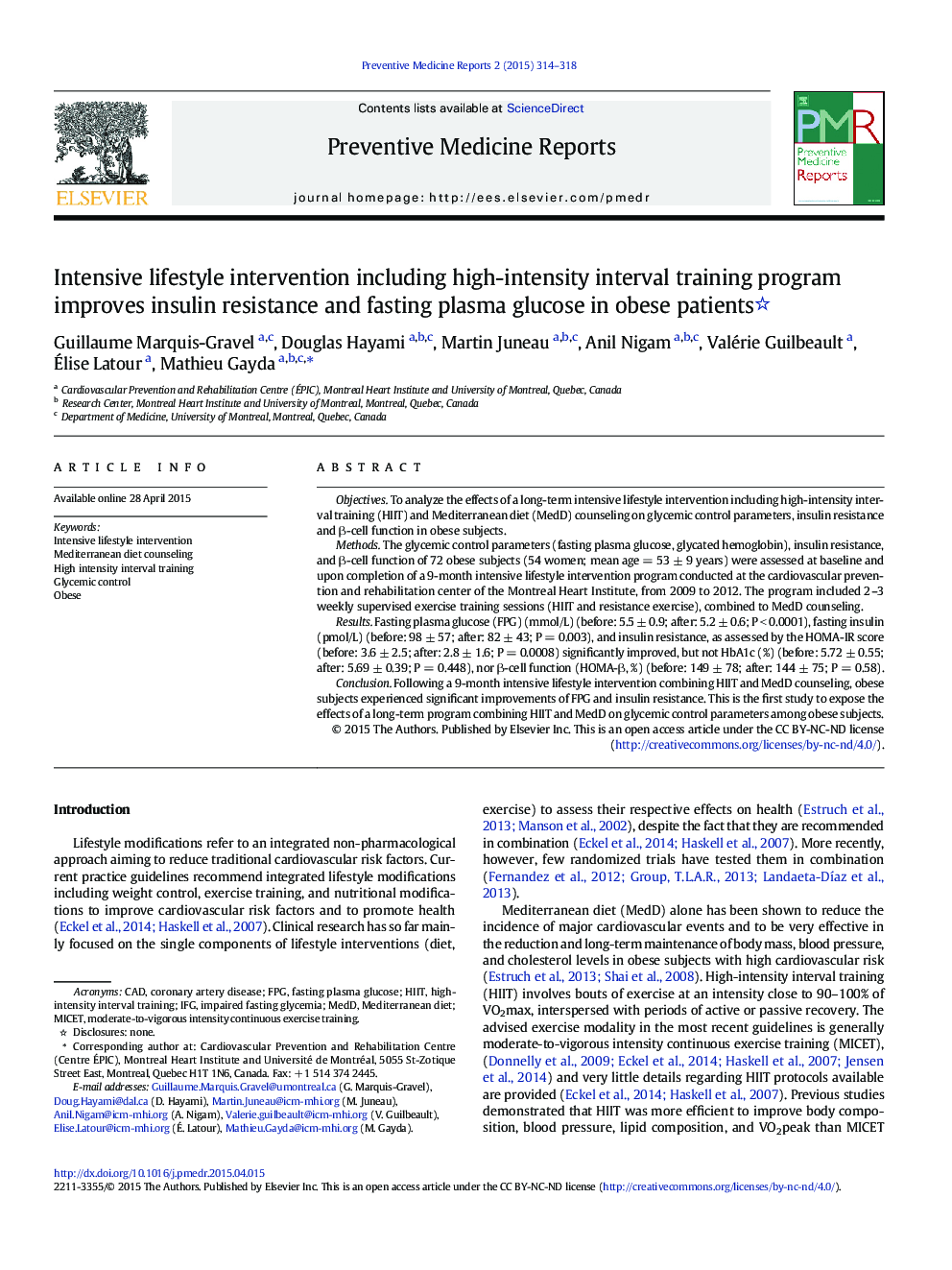| Article ID | Journal | Published Year | Pages | File Type |
|---|---|---|---|---|
| 4202436 | Preventive Medicine Reports | 2015 | 5 Pages |
•High-intensity interval training and Mediterranean diet improves glycemic parameters in obese subjects.•Patients with insulin resistance benefit the most from this program.•This is the first study to confirm these long-term benefits with such a program.
ObjectivesTo analyze the effects of a long-term intensive lifestyle intervention including high-intensity interval training (HIIT) and Mediterranean diet (MedD) counseling on glycemic control parameters, insulin resistance and β-cell function in obese subjects.MethodsThe glycemic control parameters (fasting plasma glucose, glycated hemoglobin), insulin resistance, and β-cell function of 72 obese subjects (54 women; mean age = 53 ± 9 years) were assessed at baseline and upon completion of a 9-month intensive lifestyle intervention program conducted at the cardiovascular prevention and rehabilitation center of the Montreal Heart Institute, from 2009 to 2012. The program included 2–3 weekly supervised exercise training sessions (HIIT and resistance exercise), combined to MedD counseling.ResultsFasting plasma glucose (FPG) (mmol/L) (before: 5.5 ± 0.9; after: 5.2 ± 0.6; P < 0.0001), fasting insulin (pmol/L) (before: 98 ± 57; after: 82 ± 43; P = 0.003), and insulin resistance, as assessed by the HOMA-IR score (before: 3.6 ± 2.5; after: 2.8 ± 1.6; P = 0.0008) significantly improved, but not HbA1c (%) (before: 5.72 ± 0.55; after: 5.69 ± 0.39; P = 0.448), nor β-cell function (HOMA-β, %) (before: 149 ± 78; after: 144 ± 75; P = 0.58).ConclusionFollowing a 9-month intensive lifestyle intervention combining HIIT and MedD counseling, obese subjects experienced significant improvements of FPG and insulin resistance. This is the first study to expose the effects of a long-term program combining HIIT and MedD on glycemic control parameters among obese subjects.
